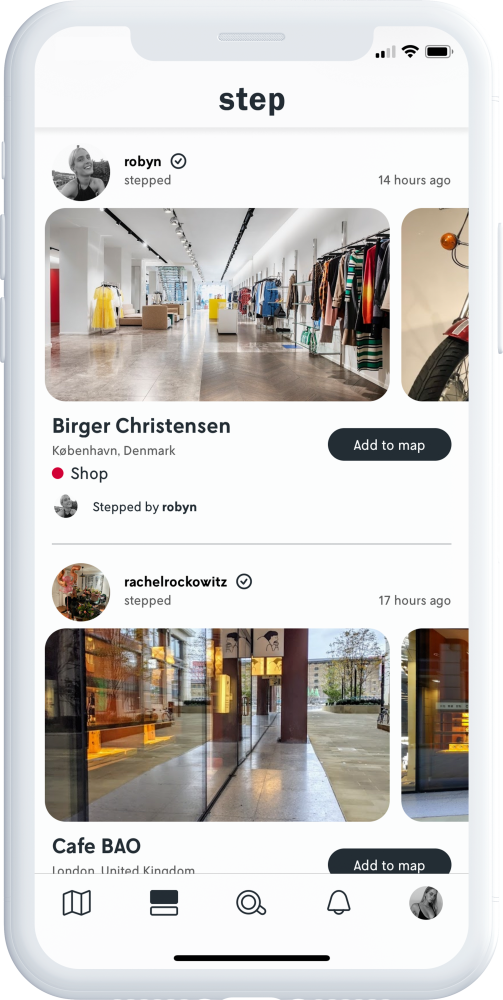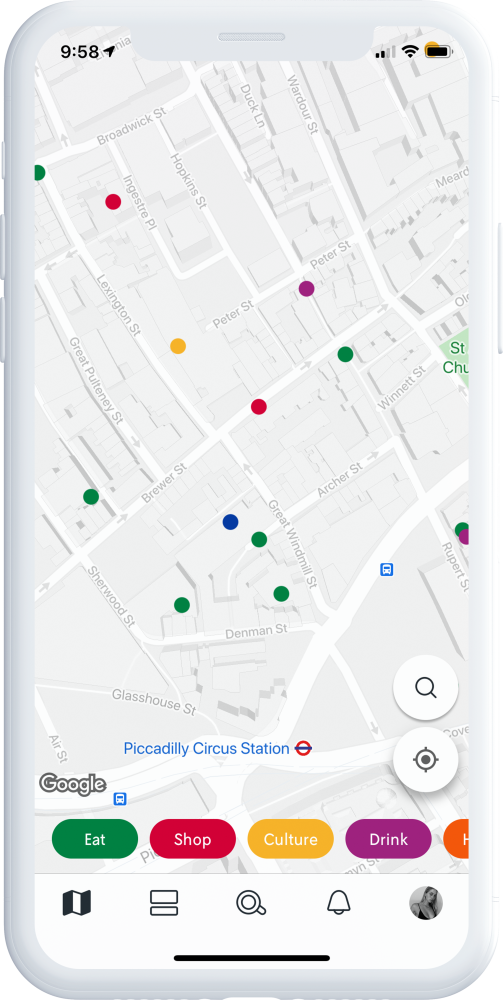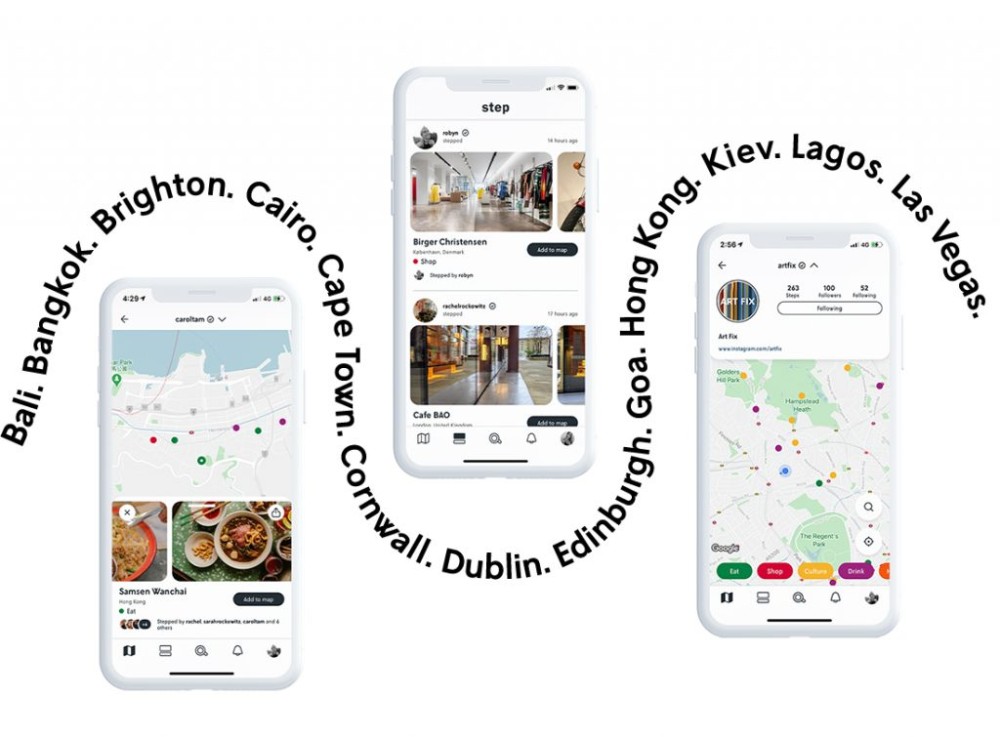
You might not know what Step is yet, but you surely will once it becomes everyone’s go-to app for all things travel and culture. Co-founders Rachel Rockowitz and Robyn Hope Nicholl take Kaitlyn Lai behind the scenes of their exciting new venture
It all started over a glass of wine at Soho House in London: Rachel Rockowitz and Robyn Hope Nicholl were catching each other up on their lives when they realised they had no social platform dedicated to sharing travel recommendations with friends.
“We live in a digital age and we thought surely there’s a platform like Instagram for places or a social Google Places,” Nicholl recalls. “When you think about social sharing you’ve got Spotify for music, Twitter for thoughts, Facebook for life, Instagram for photos, TikTok for videos… The list goes on, but you don’t have the social market leader for sharing places.”
Now, two years later, Nicholl and Rockowitz are ready to introduce the world to Step. As Nicholl puts it, Step is “where Google Maps meets Instagram”. The social platform allows users to engage with their friends or their following by sharing their favourite bars, restaurants, shops – or “steps” – in their surrounding areas.
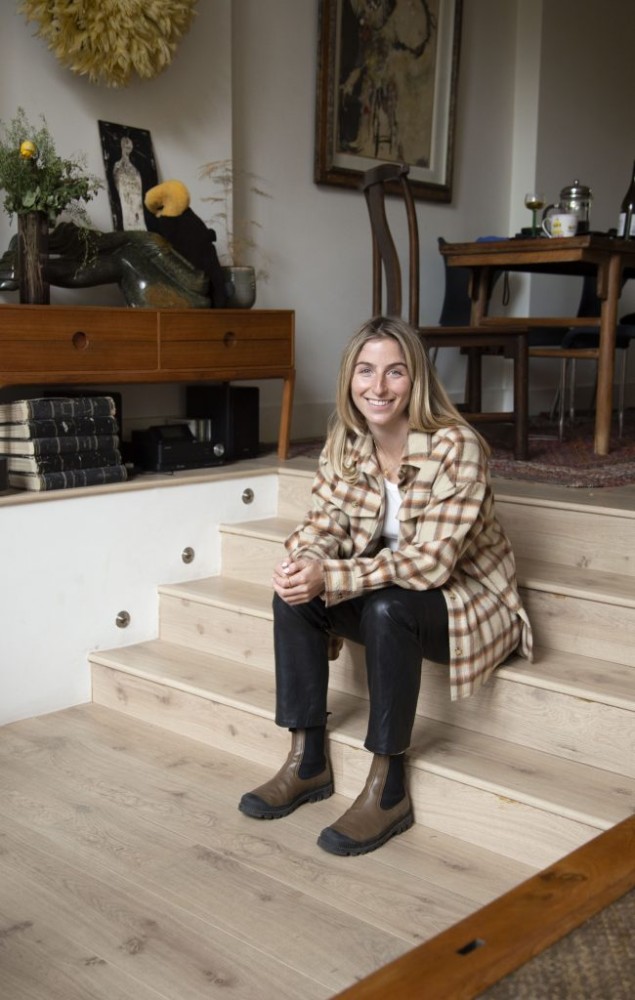
Step’s social aspect is what differentiates it from its competitors. Since the app is map-based, users can see exactly where their friends took their steps and vice versa. They can also directly add their friends’ steps onto their phone’s Maps application.
“People love the stalker aspect,” Rockowitz says. “You go on and you see what people are doing without necessarily going out yourself.”
When COVID-19 derailed the app’s scheduled launch, its founders took the enforced pause as an opportunity to build their brand equity. Rockowitz came up with the idea of asking members of the Step community to create unique mini guides for Instagram based on the six categories in the app, namely eat, drink, shop, stay, culture and health.
“We gave people free rein,” she says. “Choose the pictures you want, write it however you want and then we just started by asking the cultural leaders in our friendship group. It was very organic. Other people then came to us through them and asked if they could do one, and then it suddenly grew.”
Even before the app’s official launch, Step’s official Instagram account @step.your.world has amassed 18,500 followers. “People actually thought that our Instagram was the core business!” Rockowitz says. “It was really nice that people believed in it so much that they didn’t need an app on top of it and thought that the app was an added bonus for them.”
Of course, Step wasn’t built in a day. The process of finding their present app developer Miquido was, in Nicholl’s words, “like going through a wormhole”. To work with Miquido, the duo flew to their headquarters in Poland for a working session. With no technical background, they walked in, naively pinned up their designs on the board and shared their plan of completing the app in two months. They were bewildered when their presentation was received by laughter.
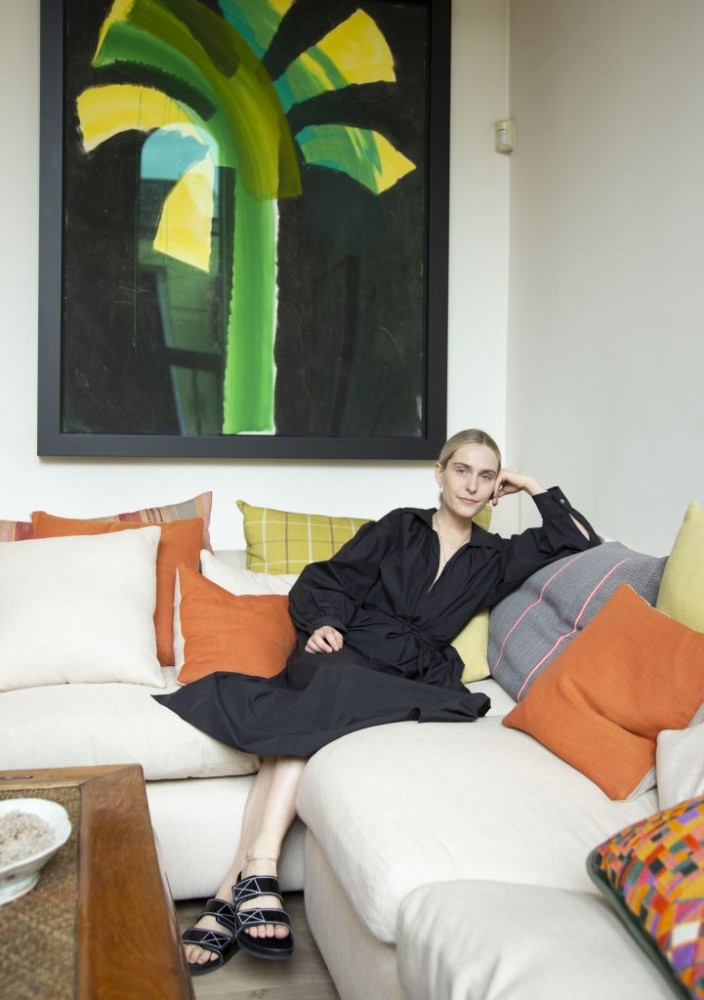
“They were like ‘woah woah woah’, this will take us like three years to build and you have to do a reality check,” Nicholl remembers with a chuckle. “We thought we knew exactly what we wanted and that our plan was streamlined, but it turns out that we wanted Instagram and Facebook and everything in the world in our app!”
Rockowitz and Nicholl were even told to consider giving up on a map-based app due to the abundance of technical issues. “Firstly, you have to know which server you’re gonna go with for the API, and we went with Google in the end. All of [the servers] have restrictions and you have to pay for all of them. To show many points on the map you have to pull data from the backend, especially when you don’t own it, so you’re pulling it from an API and the backend and then you’re showing it,” explains Nicholl.
“Some people want to move the map in and out and around, and if that’s a cornerstone of your app it needs to be very functional and work very quickly or else people will get very frustrated.”
When Miquido tried to convince them to ditch the map as a central feature, the duo almost gave up. “I remember so clearly sitting in the room and looking at them and being like, ‘You guys are some of the best developers and I really do not believe that we can’t sit here all together and come up with a technical solution for this. I know we can. We’re not going to leave the room; we can come up with a technical solution for this,’” Nicholl recalls.
And come up with a solution they did. The Step app now has around 300 beta testers – and that’s just the beginning. From chefs to architects, cultural creators across different industries have been pre-onboarded and marked steps on their maps.
Next year, Nicholl and Rockowitz are looking to put more into global marketing in major cities outside London such as Vancouver, Los Angeles, Madrid and, of course, Hong Kong, where the founders actually grew up together.
“Robyn is a couple years older than me and I was best friends with her younger brother,” Rockowitz reveals. “We were always close but not best friend-close, so we’ve always had a really good working relationship because it wasn’t like working with a best girlfriend where it’s almost too much. We’ve always been respectful of each other and we’re now basically married to each other, as Robyn always says!”
Rockowitz sums up their working dynamics with a behind-the-scenes story: “Robyn spent three months looking at different colours for our app and was literally so stressed out. I was like, ‘Just pick something, we’re moving on!’”
“I was banned from looking at colours for two weeks!” exclaims Nicholl as her friend laughs heartily. “Rachel worries about the important things there are to worry about, like money, structural things, have we got trademarking sorted, legal things.”
She adds, jokingly, “Basically I’m a nightmare and Rachel is functional!”
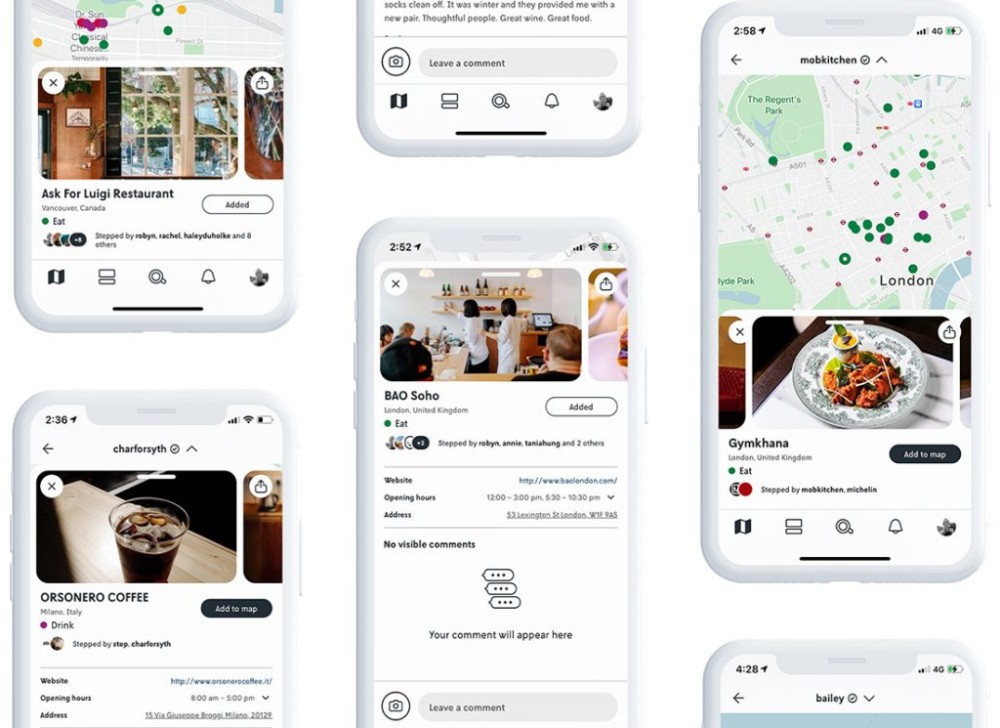
On her biggest takeaway from building Step, Rockowitz says it’s important to take your time while developing a product. “If something makes sense to us it may make sense to the user, but you don’t know until it has been implemented,” she says. “That was really interesting for me, just slowing everything down and building the functional product without the fringe first.”
As for those who think you need technological expertise to venture into the world of tech, Nicholl suggests otherwise and instead claims the lack of a tech background proved to be an asset in building Step.
“We come from a consumer background, so we made a product that we had to love,” she says. “The problem with tech is that there’s a lot of money and a lot of talent, but a lot of the time the tech is trying to solve a problem for an audience group that the people developing it or funding it don’t entirely understand.
“With all the learning, all the hurdles and all the things that were scary stepping into a space that was unknown, that’s one thing we felt really confident about: we were producing something that we really wanted to use and solving the issue we needed to.”
The Step app is now available on the Apple App Store.



